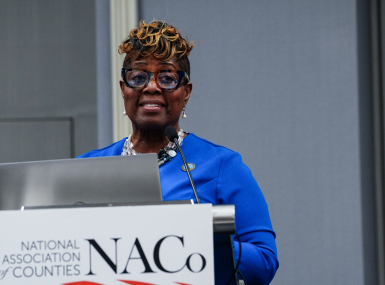Biden administration outlines steps to implement immigration reform

Key Takeaways
On February 2, the Biden administration released an immigration reform fact sheet outlining three new Executive Orders (EOs) that aim to rebuild and strengthen the nation’s immigration system. The announcement follows the first set of EOs and memorandums, signed by the president during his first week in office, that reverse and address previous actions taken by the Trump administration. These executive actions carry implications for counties as we play a central role in ensuring the health and safety of all individuals, including immigrant populations. The new EOs seek to:
- Establish an interagency task force to reunify families: Key stakeholders and representatives of impacted individuals and families will work to reunify families separated under previous immigration policies and make policy recommendations to prevent future separations. The EO also formally revokes previous executive actions allowing the Department of Homeland Security (DHS) to separate migrant families.
- Restore faith in the legal immigration system and promote integration of new Americans: Under the directive of this EO, the White House Domestic Policy Council will revive an Obama-era Task Force on New Americans, which will work to engage with local stakeholders, including county officials, to promote immigrant integration and inclusion. The EO also requires an immediate review of the “public charge” rule by multiple federal agencies. Established under the Trump administration, this rule reshapes how the federal government defines the term “public charge.” Ultimately, the “public charge” rule could make it so applications for immigrants, including those wishing to seek permanent legal residency, could be rejected if the applicant uses certain kinds of public assistance. NACo submitted comments after the DHS first issued the rule that expressed concerns that, if implemented, the “public charge” rule could result in decrease in use of federal public benefits, leading to an increase in reliance on local services.
- Address irregular migration across the southern border and create a humane asylum system: The Biden administration will also implement a three-part plan for lawful migration and expanding the asylum system. The plan entails confronting the root causes of migration strategically, collaborating with regional stakeholders to expand asylum opportunities closer to migrants' home countries and expanding access to legal avenues for refugees and asylum seekers to enter the country
Counties support immigration policies that minimize negative impacts on families and children, do not increase reliance on local social safety-net services or create new demands and administrative costs for counties and that boost local economies through the expansion of legal pathways to residency. NACo will continue to monitor the executive actions taken by President Biden and work with the administration to help implement an immigration strategy that values the role of local governments.
Advocacy
Changes enacted to federal immigration policies as Title 42 expires

Related News

National Association of Counties Launches Initiative to Strengthen County Human Services Systems
The National Association of Counties (NACo) announces the launch of the Transforming Human Services Initiative, a new effort to help counties modernize benefits administration, integrate service delivery systems and strengthen county capacity to fulfill our responsibility as America’s safety net for children and families.

Congress seeking ‘common-sense solutions’ to unmet mental health needs
Rep. Andrea Salinas (D-Ore.): “Right now, it is too difficult to access providers … and get mental health care in a facility that is the right size and also the appropriate acuity level to meet patients’ needs.”

Prince William County transforms crisis care through "No Wrong Door" approach
Prince William County, Va.’s Crisis Receiving Center is bridging the gap between emergency room care and traditional outpatient care in behavioral crisis response and reducing burden on local law enforcement and hospitals.

